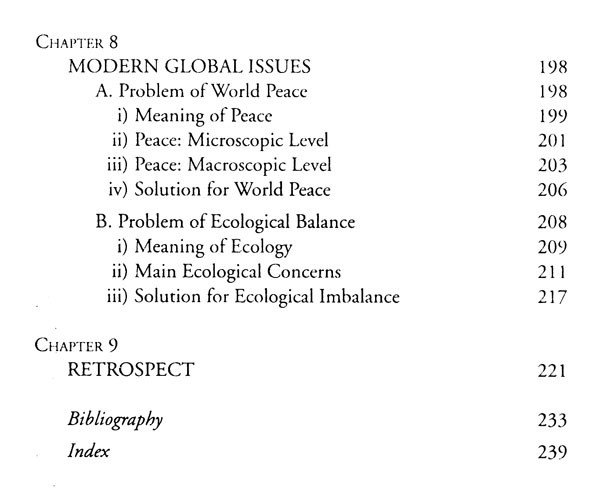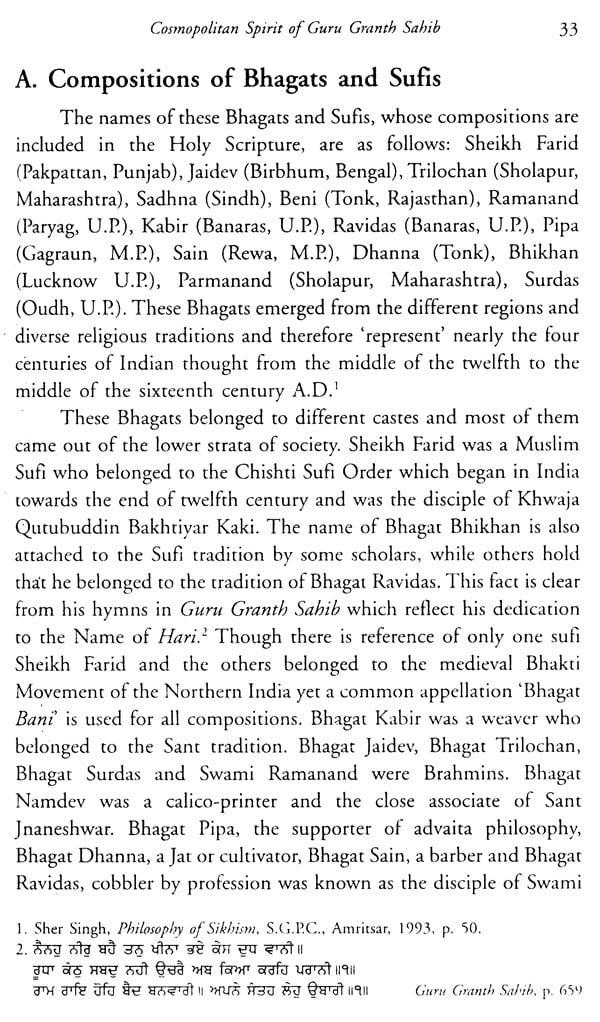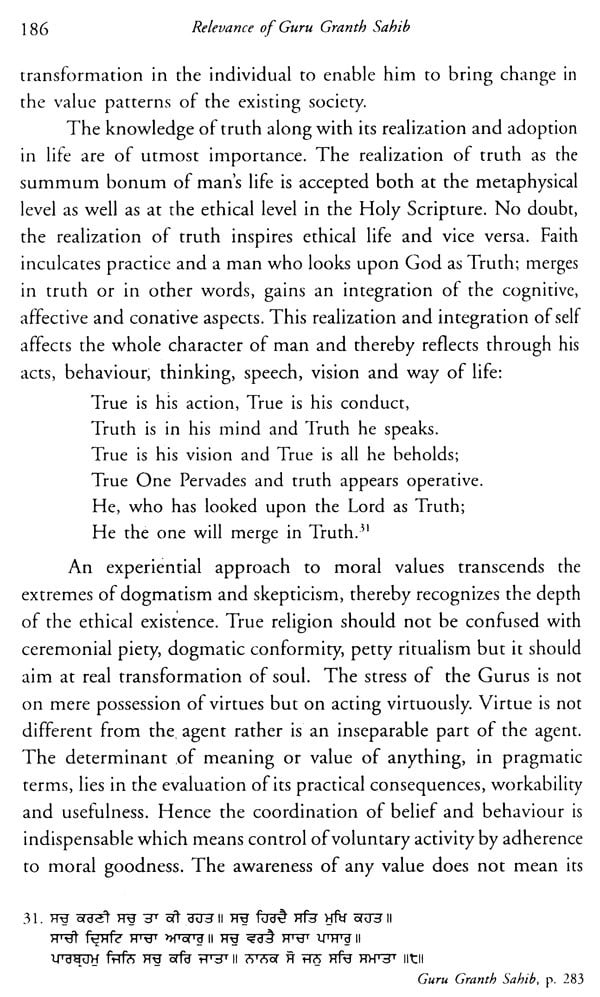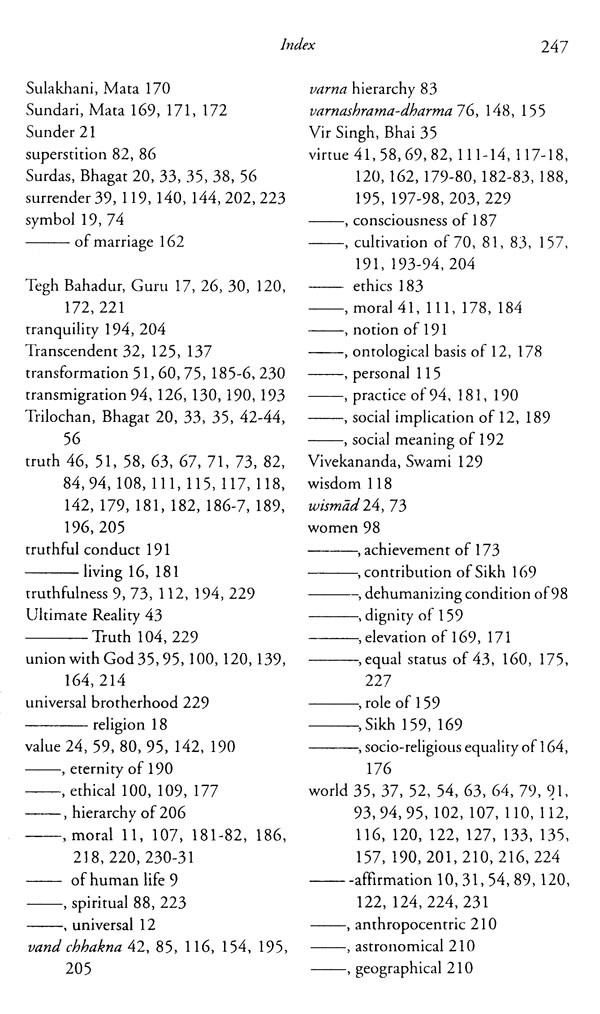
Relevance of Guru Granth Sahib (In the Modern Context)
Book Specification
| Item Code: | UAZ611 |
| Author: | Shashi Bala |
| Publisher: | Singh Brothers, Amritsar |
| Language: | English |
| Edition: | 2006 |
| ISBN: | 8172053878 |
| Pages: | 248 |
| Cover: | HARDCOVER |
| Other Details | 9.00 X 6.00 inch |
| Weight | 450 gm |
Book Description
The present study, well-documented and duly authenticated, will be a useful addition to the existing sources and will prove helpful for the research scholars working in the field of Sikh Studies.
The present treatise is an exclusive study of the philosophy of Guru Granth Sahib and its relevance in the modern context. It is divided in nine chapters beginning with the brief introduction of the origin and development of Sikh religion, highlighting the cosmopolitan spirit of the Scripture, its distinctive culture of life, philosophy of world-affirmation and philosophy of action, it analyses the modern social issues; applied ethics as well as modern global issues and their solution as is recommended in Guru Granth Sahib.
The first chapter 'Sikh Religion-An Overview' is an introduction of Sikh religion since its origin with the advent of Guru Nanak and expatiates its growth to the turn of the millennium by stating a brief resume about the Gurus and their unique works for the consolidation of Sikh religion.
Guru Granth Sahib is the Holy Scripture of the Sikh religion which no doubt is the youngest religion of the world religions but is recognized as one among the major world religions. It is a revolutionary prophetic religion which emerged over five hundred years ago and is spread over a period of four centuries. The Sikh religion originated with the advent of Guru Nanak (1469-1539) and reached its culmination in the creation of Khalsa by Guru Gobind Singh (1699-1708). To study the scripture in the context of modern issues, it is indispensable to highlight the growth of Sikhism from its origin to the turn of the millennium by illustrating briefly the founder and other Gurus, the Scriptures, theological aspects, cultic or liturgical aspects, social-political movements and the future of Sikhism in the present scenario.
i) Founder and other Gurus.
Guru Nanak (1469-1539), the founder of Sikh religion was born at village Talwandi, now known as Nankana Sahib in Pakistan and belonged to Bedi gorra. According to the popular legends, Guru Nanak had divine knowledge from the time of his birth and got revelation in Vein River near Sultanpur in 1499. After that he started his peregrination towards east, south, north and west and in 1522 settled at Kartarpur where he stayed for 17 years.
**Contents and Sample Pages**
















